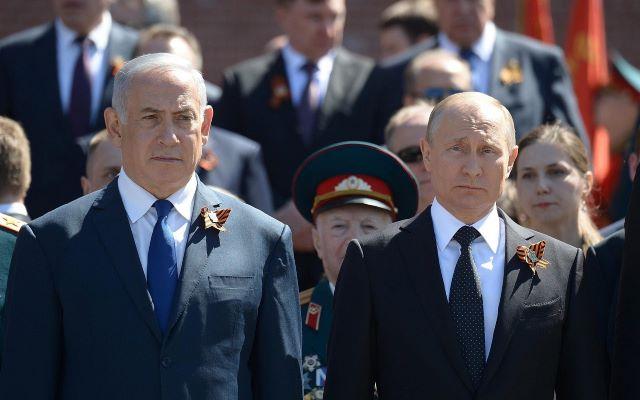Since the outbreak of hostilities, Israel has significantly intensified its operations against Iranian-backed militias operating in Syria, particularly those encroaching on the Golan Heights border region. A recent report from Bloomberg sheds light on a pivotal shift in Jerusalem's policy—a departure from its previous practice of notifying Russia, Syria's ally, in advance of its military actions within Syria through their established coordination mechanism.
Insiders with knowledge of the situation reveal that this policy change, coupled with the Israeli Defense Forces' (IDF) increasingly assertive stance in Syria, is exacerbating the already strained relationship between Israel and Russia. On October 30th, Israeli warplanes executed a precision strike on a Syrian military facility situated in the Daraa district, located in the southern part of the country. This attack followed Israel's dissemination of leaflets in the region, cautioning Syrian forces against permitting the presence and activities of Iran and its affiliated groups near the Israeli border.
If I told you Russians killed more Muslims in Syria than Israel has killed in Gaza, would you organise worldwide rallies against Russia?🤔 pic.twitter.com/NgXXyoFsvB
— Harris Sultan (@TheHarrisSultan) November 5, 2023
Earlier, on October 25th, the IDF responded to rocket launches originating from Syrian territory. Although these rockets caused no casualties or damage, at least two of them landed in the southern Golan Heights. In response, the IDF initiated artillery fire directed at the sources of the rocket launches. Furthermore, under the cover of night, Israeli fighter jets launched strikes on military infrastructure and positions suspected of housing mortar bomb launchers belonging to the Syrian army. It's noteworthy that the IDF refrained from attributing these rocket launches to the Assad regime.
Bloomberg's report also highlights that Russian military personnel frequently inhabit the very facility that Israel targeted on October 25th. However, it remains unclear whether Russian personnel were present at the base during the Israeli assault. While the Syrian army confirmed these attacks, sources cited in the report indicate that Israel did not provide prior notification to Russia regarding these operations.
Meanwhile, Russian President Vladimir Putin has maintained his consistent rhetoric since the outset of the conflict, subtly criticizing Israel. Putin remarked, "Any reasonable individual would be deeply disturbed by the images of suffering children in Gaza," even as his own military conducts a brutal campaign in Ukraine.
Russia will reportedly transfer an advanced anti-aircraft system to Hezbollah, and might have already done so. In 2019, the Israeli Air Force destroyed two similar Russian batteries in Syria. #IsraelHamasWar #Israel #Lebanon pic.twitter.com/RUsF371OnA
— Eretz Israel (@EretzIsrael) November 2, 2023
Putin's remarks come against the backdrop of Moscow's concerning, though not entirely unexpected, behavior following Hamas's recent terrorist attack against Israel. In all of its public statements since the tragedy in southern Israel, Russia has notably refrained from explicitly condemning Hamas. Instead, it appears to be focusing its criticism primarily on Israel's response and on the perceived failure of its great rival, the United States, to broker a resolution to the Middle East conflict.


